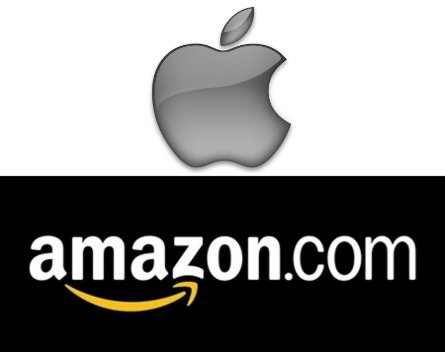
The recent Apple v Amazon case in the United States concerning Amazon’s use of the phrase ‘Appstore’ provides an important lesson for business owners in relation to use of business names, trading names and product names (trademarks) – take care to select a trademark which you alone can use.
Apple has been using the words ‘App Store’ since July 2008 in connection with sales of applications for Apple mobile devices.
Apple complained when Amazon started to use ‘Appstore’ in connection with sales of applications for Android devices and the Kindle Fire (Amazon’s tablet computer).
Apple argued that Amazon’s use of ‘Appstore’ amounted to: infringement of Apple’s trademark rights to the words ‘App Store’, dilution of that trademark and false advertising.
Apple had already applied to have the words registered as a trademark, but while Amazon defended its right to use ‘Appstore’, Microsoft opposed Apple’s trademark application.
Amazon and Microsoft argued that the term ‘App Store’ is a generic term and not capable of identifying and distinguishing a single source. They stated that ‘App’ is short for ‘application’, that ‘applications’ are “computer programs that assist in the performance of specific tasks, such as word processing, accounting and many other functions” and that the word ‘app’ is a “common, generic name for software applications”.
Apple responded by arguing that the ‘App Store’ mark is clearly capable of identifying and distinguishing Apple as the source of the services it offered under the mark because of the “enormous reputation, goodwill and fame” that ‘App Store’ has developed and that the vastly predominant usage of ‘App Store’ is as a result of Apple’s “extraordinarily well-known APP STORE mark and the services rendered by Apple”.
The Apple v Amazon trial settled before it got to trial and was dismissed on July 8, 2013.
In an official statement given by an Apple spokesperson about the decision to withdraw its claim against Amazon, Apple said, “We no longer see a need to pursue our case.”
And: “With more than 900,000 apps and 50 billion downloads, customers know where they can purchase their favorite apps.”
We infer from this statement that Apple have accepted that the term ‘App Store’ is generic, as Amazon and Microsoft claimed. If so, Apple cannot stop other traders from using the term.
This case demonstrates the importance of selecting an appropriate name for your business, brand and products. Names which are distinctive and unique to your business will be easier to protect than names which tend to be descriptive of your business. As the Apple case shows, even large international companies with profits in the billions of dollars can find it hard to protect descriptive trademarks.
Other trademarks which have been held to be overly descriptive to act as trademarks because they are ordinary descriptions of the goods or services include: ‘Mint Slice’ for biscuits, ‘Cranberry Classic’ for fruit juices, ‘Cheezy Twists’ for cheese flavoured twisted snack foods and ’24 Hour Fitness’ for health club services.
So how do you pick the right trademark?
You should carefully research your chosen industry to ensure as far as possible that the name you choose is: (a) not already in use by another trader; and (b) distinctive and unique of your business rather than descriptive of your particular goods or services. Free online searches can be done through:
- the Australian Securities and Investments Commission (ASIC) website (www.asic.gov.au) for business and company names;
- IP Australia’s website (www.ipaustralia.gov.au) for trademarks already applied for and registered;
- the government’s Australian Business Number (ABN) website (www.abr.business.gov.au) for listings of registered ABNs; and
- general searching through Google – both normal word searching and images searching.
So before you expend a considerable amount of money establishing your business (printing stationery, contracting with graphic artists to design your logo, erecting signage, etc.) do your research and talk to your lawyers about the various different business names, brand names, product names that you are thinking about using so as to put yourself in the best position to protect your hard work and valuable reputation against those wishing to ride your coat-tails.


COMMENTS
SmartCompany is committed to hosting lively discussions. Help us keep the conversation useful, interesting and welcoming. We aim to publish comments quickly in the interest of promoting robust conversation, but we’re a small team and we deploy filters to protect against legal risk. Occasionally your comment may be held up while it is being reviewed, but we’re working as fast as we can to keep the conversation rolling.
The SmartCompany comment section is members-only content. Please subscribe to leave a comment.
The SmartCompany comment section is members-only content. Please login to leave a comment.